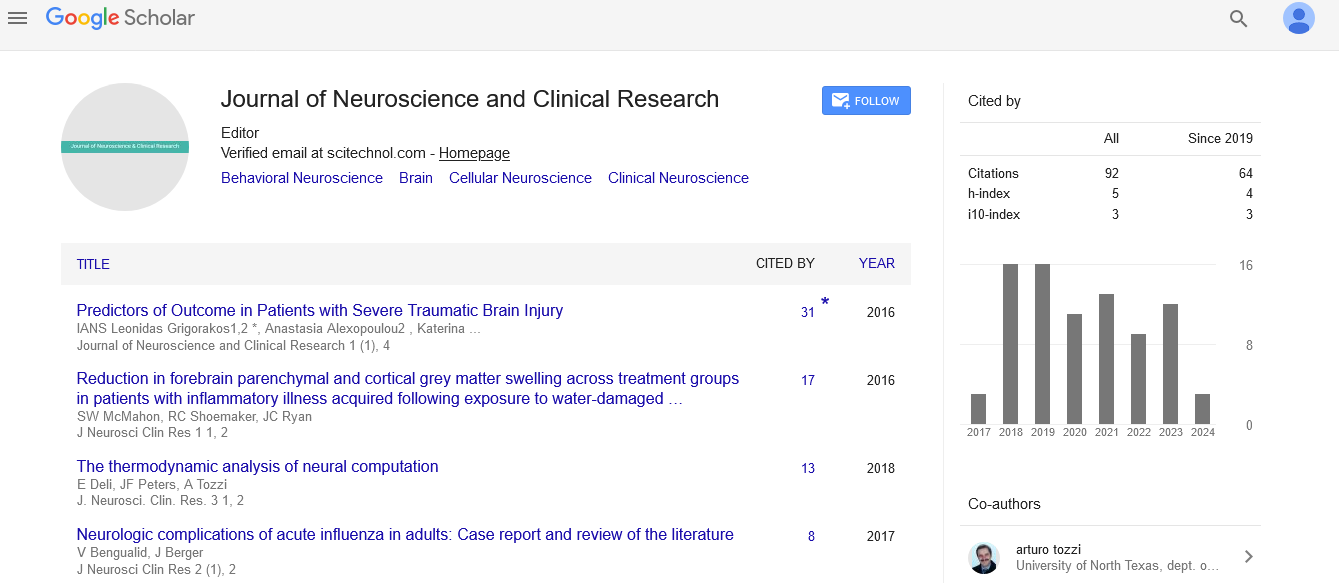A Better Understanding of Moyamoya in Trisomy 21: A Systematic Review
Arowa Abdelgadir
California Institute of Behavioral Neurosciences & Psychology, USA
: J Neurosci Clin Res
Abstract
Internal carotid artery stenosis or stenosis of the middle, anterior, or posterior cerebral arteries with significant collateral development is known as Moyamoya disease. In angiographic exams, this collateral vessel displays a distinct appearance. When moyamoya disease occurs in association with other systemic illnesses, it is referred to as moyamoya syndrome. Down syndrome is one of the association. Moyamoya syndrome is quite common in Down syndrome patients, and the reason is unknown. The majority of individuals present in their first decade, with clinical manifestations changing according to age. In persons with trisomy 21, the cause of moyamoya syndrome is uncertain. The goal of this study was to understand more about the etiology and pathophysiology of moyamoya syndrome in Down syndrome patients.This systematic review followed the Preferred Reporting Items for Systematic Review and Meta-Analysis (PRISMA) standards. A comprehensive database search was used to find several papers related to this topic. After applying inclusion and exclusion criteria and examining the quality of each work, they were reduced to a final number of ten papers. In these final studies, several theories were proposed to explain the link between moyamoya syndrome and trisomy 21. Patients with trisomy 21 have a hereditary propensity to vascular issues. The function and flexibility of the arteries are influenced by a number of proteins on chromosome 21. Patients with moyamoya commonly have mutations in the RNF213 protein gene.
Biography
Dr. Arowa Abdelgadir completed her study in California Institute of Behavioral Neurosciences & Psychology, Fairfield, CA, USA. And she is a Medical registrar in Naas General Hospital ,Naas ,Co.Kildare ,Ireland.
 Spanish
Spanish  Chinese
Chinese  Russian
Russian  German
German  French
French  Japanese
Japanese  Portuguese
Portuguese  Hindi
Hindi 